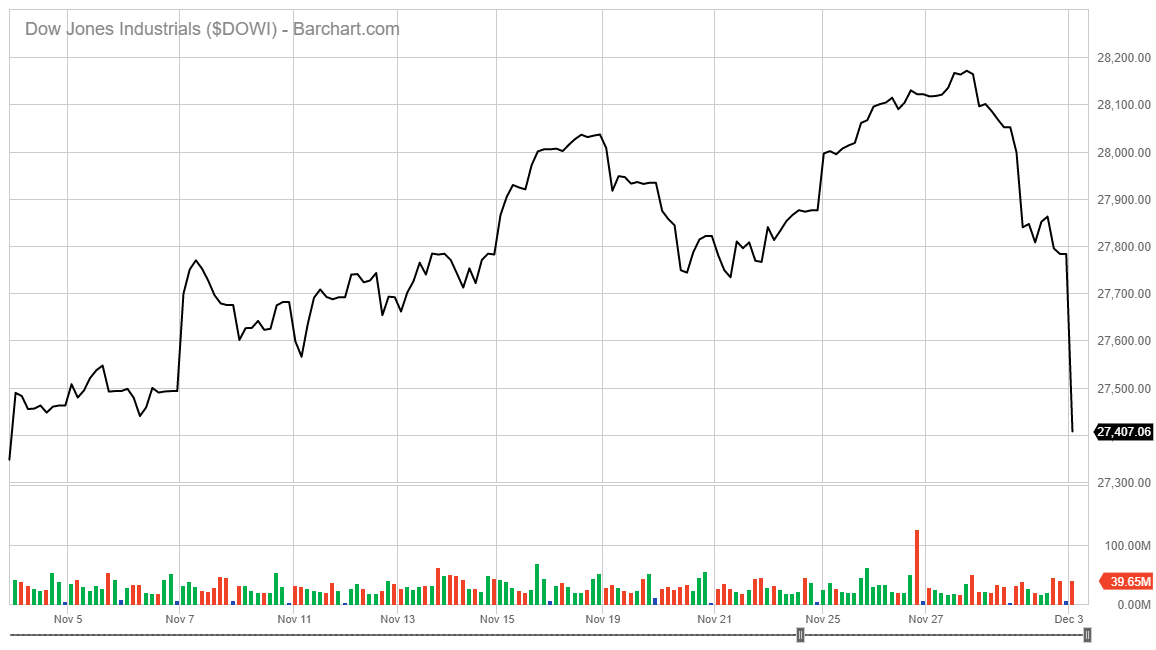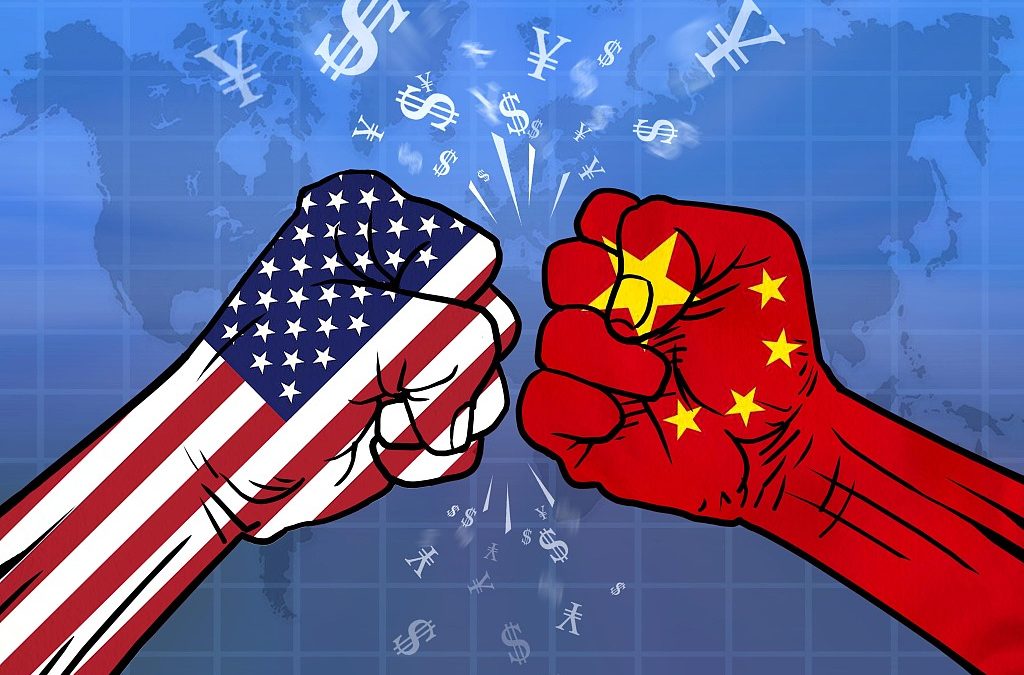A controversial bill in Congress may lead to a China blacklist of a number of U.S. companies in retaliation.
Early Tuesday, the Global Times tweeted that China would soon release what it called an “unreliable entity list,” which Beijing has been threatening since May, in response to a bill sanctioning the Chinese government for actions against Uighur Muslims in the western region of Xinjiang.
Source told Global Times that China will release an "unreliable entity list" soon, which includes relevant US entities. US House is expected to pass a Xinjiang-related bill that will harm Chinese firms’ interests, prompting China to speed up the move.
— The Business Source (@GlobalTimesBiz) December 2, 2019
The legislation further complicates an already tenuous situation between Washington and Beijing.
President Donald Trump signed legislation last week censuring the Chinese government over its handling of pro-democracy demonstrators in Hong Kong.
The latest bill condemning Beijing’s actions against the Uighurs was sponsored by Florida Republican Sen. Marco Rubio. The Senate unanimously approved a version in September.
The House of Representatives will likely approve the measure Tuesday. But it would be an amended version of the one passed by the Senate, meaning those differences would have to be worked out.
A section of the bill includes requiring Trump to sanction Chinese officials responsible for the alleged repression.
The U.S.-China trade war was further complicated on Tuesday. Trump told reporters during a meeting of NATO leaders that a trade deal may not actually happen until after the 2020 presidential election.
This latest round of trade war issues sent U.S. markets tumbling Tuesday. The Dow Jones Industrial Average dropped more than 330 points through afternoon trading. The S&P 500 fell 31 points, and the Nasdaq lost 106 points.

Trump responded to the stock market dip Tuesday by calling the losses “peanuts,” and said it would not derail him from getting a favorable trade deal with the Chinese.
A potential China blacklist has not targeted any specific U.S. companies. China’s foreign ministry side-stepped any specifics during a Tuesday briefing, according to Bloomberg.
“China will take further necessary measures according to the development of the situation,” ministry spokeswoman Hua Chunying said, according to Bloomberg.
One U.S. company that could feel the brunt of a China blacklist is FedEx Corp. The company came under fire in July after it claimed packages from Huawei Technologies Co. were rerouted to the U.S.
Chinese officials said it found other violations of the law with FedEx and would continue its investigation.
Timing of the Potential China Blacklist on U.S. Companies
Beijing’s latest blacklisting threat comes just 12 days before the U.S. will impose new tariffs on China. Those include a 15% tariff on nearly $160 billion worth of goods. Commerce Secretary Wilbur Ross said there is no reason to halt those tariffs.
“Well, unless there’s some real reason to postpone them. If there were a little bit of time needed for more talks, we probably would postpone it,” Commerce Secretary Wilbur Ross told CNBC on Tuesday. “Enough substantive progress had been made, (President Trump) might really have to look at the exact situation as we get a little closer to that time.”
Ross said staff-level trade talks between the two countries would continue. There are, however, no high-level talks between Washington and Beijing scheduled before the Dec. 15 deadline.
Both Ross and Trump reaffirmed they feel there is no deadline to get a trade agreement done.
“The president’s objective always has been to get the right deal independently of when or anything else like that,” Ross said. “So his objectives haven’t changed. And if we don’t have a deal, he’s perfectly happy to continue with the tariffs as we have.”
There was a partial agreement with China announced by Trump in October, but no preliminary deal has been signed.
The ‘Unreliable Entity’
The Chinese government won’t come right out and say it’s a blacklist. Instead, Beijing puts companies on an “unreliable entity list.”
It’s companies the government in Beijing feels to have “severely damaged the legitimate interests” of Chinese companies, according to a definition published by Bloomberg in May.
Companies targeted by a new blacklist would likely be those who export to China. It would not target those who have invested and are producing in the country.
Cui Fan, director of research at the China Society for World Trade Organization Studies, told the People’s Daily Monday in June that any blacklisted companies could appeal the addition and could be removed after specific requirements are met.
What Does China Blacklist Mean?
A China blacklist is just like tariffs — bullets in the trade war gun.
The United States has nearly 30 companies, such as the frequently covered telecom giant Huawei, on an “entity list,” restricting or outright blocking their ability to purchase American-made software and components.
While Beijing had considered its own blacklist, or “unreliable entity list,” in May when it discussed FedEx. It also threatened a blacklist in June over a proposed $2 billion arms sale to Taiwan from General Dynamics Corp. and Honeywell International Inc.
But, again, the government has never followed up with a China blacklist of U.S. companies.
So it is unclear if Beijing plans to follow through with a blacklist of its own, but if it does you can expect some form of retaliation from the Trump administration, likely over and above the Dec. 15 tariffs — which appear more likely to take effect.
That retaliation could be a further extension of the U.S. blacklist of Chinese companies.
Regardless of whether there is a China blacklist or not, it appears the end of the U.S.-China trade war is not as close as we thought it would be.





